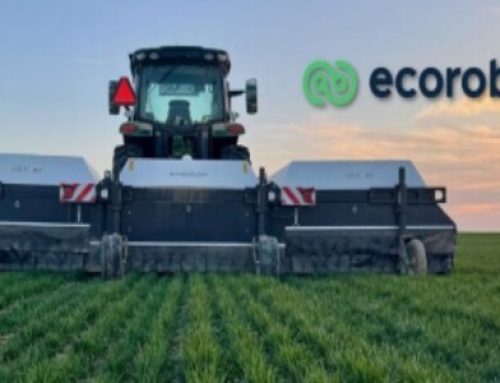Source: USDA news release
WASHINGTON – The U.S. Department of Agriculture (USDA) is seeking information from the public on protocols that may be considered for inclusion in a new Greenhouse Gas Technical Assistance Provider and Third-Party Verifier Program, the main program of the Growing Climate Solutions Act.
The input is being collected through a Request for Information and will be considered in the preparation of a proposed rule to establish the program. Agriculture Secretary Tom Vilsack announced the release of the Request for Information at an event at the Johns Hopkins University Bloomberg Center in Washington, DC this morning entitled, “Advancing a Low-Carbon American Economy Through High-Integrity Voluntary Carbon Markets and Industrial Strategy.”
To read the official request click here.
“High-integrity voluntary carbon markets offer a promising tool to create new revenue streams for producers and achieve greenhouse gas reductions from the agriculture and forest sectors,” Vilsack said. “However, a variety of barriers have hindered agriculture’s participation in voluntary carbon markets and we are seeking to change that by establishing a new Greenhouse Gas Technical Assistance Provider and Third-Party Verifier Program.”
The program is authorized under the Growing Climate Solutions Act (GCSA), part of the Consolidated Appropriations Act of 2023. As part of USDA’s implementation of the GCSA, in October 2023 the Department published A General Assessment of the Role of Agriculture and Forestry in the U.S. Carbon Markets (PDF, 1.7 MB), a comprehensive look at current market activity, barriers to participation, and opportunities to improve access to high-integrity carbon markets for farmers, ranchers, and private forest landowners.
Establishing the new Greenhouse Gas Technical Assistance Provider and Third-Party Verifier Program is the next step in implementing the GCSA. The new program would facilitate better technical assistance by providing a list of qualified technical assistance providers and third-party verifiers who work with producers to generate credible carbon credits, enabling USDA to share trusted information and reduce market confusion. USDA would also list widely accepted voluntary carbon credit protocols designed to ensure consistency, reliability, effectiveness, efficiency, and transparency.
“By adopting science-based practices to reduce emissions or sequester carbon on their land, farmers, ranchers, and private forest landowners can access a new income stream through carbon credit sales while also combatting climate change,” said USDA Under Secretary for Marketing and Regulatory Programs Jenny Lester Moffitt.
“USDA is now seeking to gather information about the protocols used in carbon credit markets as we work to best support the agricultural industry’s participation in carbon credit programs. Public input will be invaluable as we develop the structure of these new resources.”
USDA’s Request for Information will publish in the Federal Register on May 29, 2024 and is seeking feedback on provisions of the GCSA including:
1.Options for interpreting and applying criteria used to evaluate protocols that are designed to ensure consistency, reliability, effectiveness, efficiency, and transparency.
2.Information pertaining to specific protocols to be evaluated for inclusion in the program.
3.Qualifications needed by covered entities who provide technical assistance to farmers, ranchers, or private forest landowners.
4.Qualifications needed by covered entities who serve as third party verifiers of processes described in protocols for voluntary environmental credit markets.
Interested parties may submit comments during the 30-day public comment period at www.regulations.gov.
Following this request for information USDA will also seek industry participation in an advisory committee to further inform the development of this and related programs.
For more information about the Greenhouse Gas Technical Assistance Provider and Third-Party Verifier Program click here or contact Sasha Strohm, Program Manager, at [email protected] or 202-720-5705.


